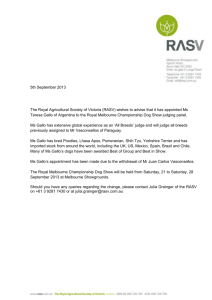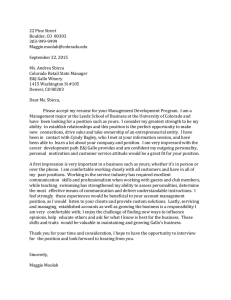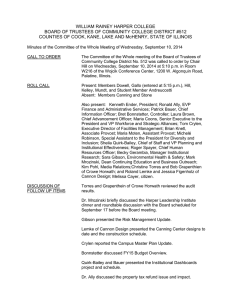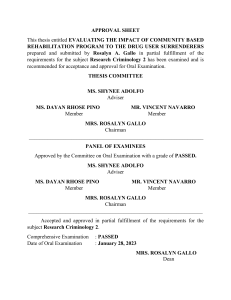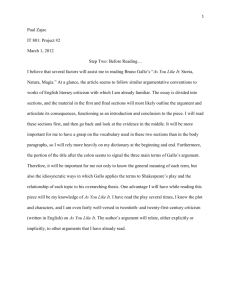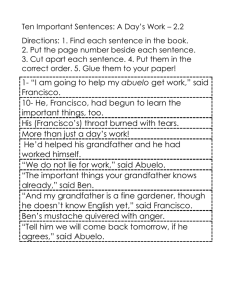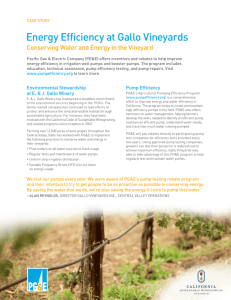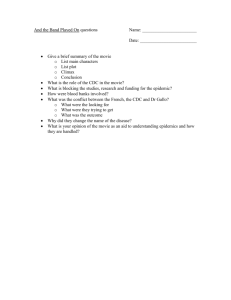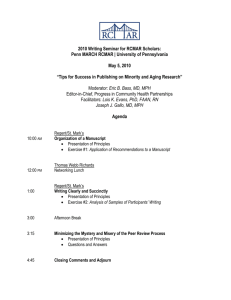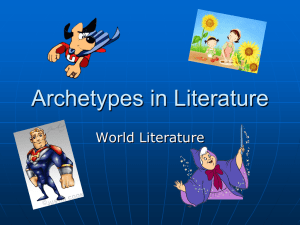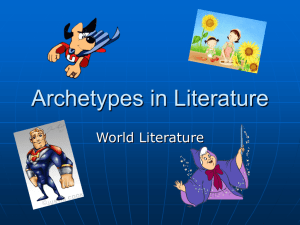Roosters Play Analysis
advertisement
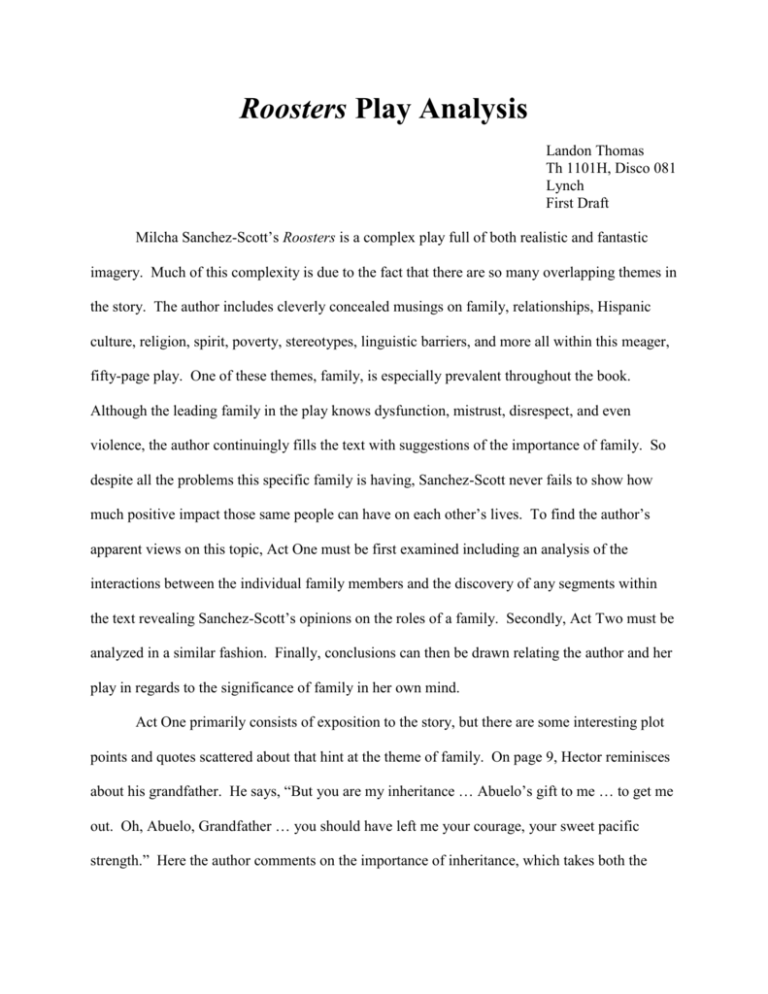
Roosters Play Analysis Landon Thomas Th 1101H, Disco 081 Lynch First Draft Milcha Sanchez-Scott’s Roosters is a complex play full of both realistic and fantastic imagery. Much of this complexity is due to the fact that there are so many overlapping themes in the story. The author includes cleverly concealed musings on family, relationships, Hispanic culture, religion, spirit, poverty, stereotypes, linguistic barriers, and more all within this meager, fifty-page play. One of these themes, family, is especially prevalent throughout the book. Although the leading family in the play knows dysfunction, mistrust, disrespect, and even violence, the author continuingly fills the text with suggestions of the importance of family. So despite all the problems this specific family is having, Sanchez-Scott never fails to show how much positive impact those same people can have on each other’s lives. To find the author’s apparent views on this topic, Act One must be first examined including an analysis of the interactions between the individual family members and the discovery of any segments within the text revealing Sanchez-Scott’s opinions on the roles of a family. Secondly, Act Two must be analyzed in a similar fashion. Finally, conclusions can then be drawn relating the author and her play in regards to the significance of family in her own mind. Act One primarily consists of exposition to the story, but there are some interesting plot points and quotes scattered about that hint at the theme of family. On page 9, Hector reminisces about his grandfather. He says, “But you are my inheritance … Abuelo’s gift to me … to get me out. Oh, Abuelo, Grandfather … you should have left me your courage, your sweet pacific strength.” Here the author comments on the importance of inheritance, which takes both the material form of the rooster and the biological form of his heredity. Even though Hector proves to be troubled later in the story. he recognizes this importance here. Chata echoes this sentiment when she reminisces about her grandmother and the things her grandmother taught her on page 11. Gallo’s paternal influence on the family is touched on on page 10 with Juana saying how she wants “him to feel good, be proud of us.” This is expounded on on page 17 when Juana comments that Gallo “is with us all the time, he got his eye on us, he knows everything we’re doing.” She continues on with how she converses with Gallo frequently through letters. She concludes these thoughts about Gallo on page 18 with how “you kids gotta be nice and clean, your papa don’t like dirty people.” Even though Gallo has been in prison for seven years, he still maintains a very strong link with Juana, which she reflects to the children. Through these multiple references, Sanchez-Scott has shown how powerful a father’s role can be in a family, regardless of the hardships endured or even the character of the father.
